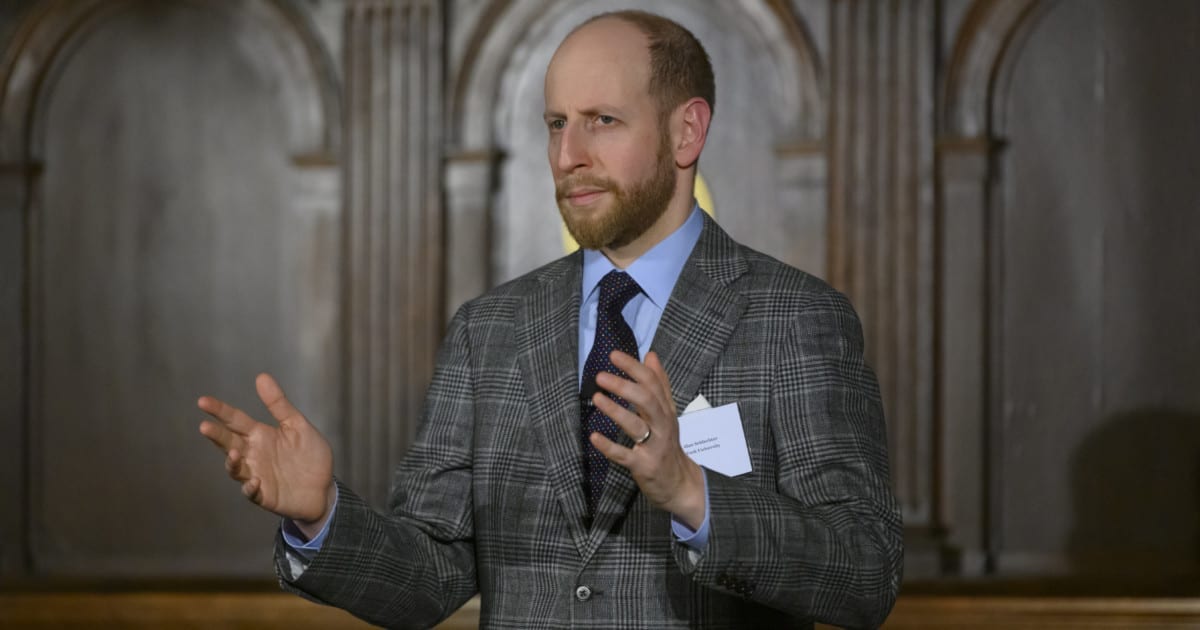In December 2018, Dr. Michael Lindsey testified before the Congressional Black Caucus about an issue he believed to be both urgent and under-acknowledged: the dramatic increase in the suicide rate of young black boys.
Earlier in the year, epidemiologist Jeff Bridge published a study showing that suicide rates had doubled between the years 1993 and 2011 for Black youth ages 5-11 years old, with Black boys being twice as likely to die by suicide as White boys in the same age group. Meanwhile, suicide rates for White youth and other racial/ethnic groups actually decreased over that time period.
With heartbreaking stories of several young Black boys who had taken their own lives, Lindsey urged the Caucus to convene an emergency task force on the issue. A month later, the congresswoman who led the hearing, Bonnie Watson Coleman of the 12th Congressional District of New Jersey, agreed to do so.
She asked Lindsey’s organization to lead the working group that would help lawmakers explore the question: why are black boys, in particular, ending their lives at increasing rates, running counter to trends in other children their age?
Lindsey is the Executive Director of the McSilver Institute for Poverty, Policy and Research at New York University. He and his team of experts use research and policy to address the root causes and consequences of poverty. So why is an Institute focused on addressing poverty in this country leading the examination on suicide disparities?
The answer starts with Lindsey himself, who is a noted scholar in the field of child and adolescent mental health, but is then explained by the genesis of the Institute’s work, which is to identify and examine the dynamics that either keep people in poverty or allow them to rise out of it. A large part of that includes studying the impacts of race, education, and mental health.
The Institute cites data indicating that suicide rates in the U.S. are closely correlated to poverty rates; that PTSD is associated with increased suicide attempts among Black urban young men; and incarcerated youth die by suicide at a rate 2–3 times higher than that of youth in the general population.
Lindsey believes these disparities reflect a larger problem that the Institute had already been working on which is to close the treatment gap for children who are suffering from mental health issues and redirect school discipline policies away from suspensions and towards therapeutic support.
“When you consider that education is the equalizer for people impacted by poverty and that completing your education is influenced by issues such as depression, anxiety and trauma, access to treatment is really important,” he said.
“But for schools who even have mental health support, we see a disproportionate number of students who actually get help. Black children, in particular, are at the lower rung of opportunity in this regard.”
Lindsey notes that Black children are also the first to be suspended from school when problems arise or issues emerge. The trends start as early as Pre-K and begin a cycle that follows some children throughout their education trajectory. Lindsey calls this “racial assignment wrapped with implicit bias.”
“There’s a demonization of behavioral presentation that Black and Brown kids seem to engender from school personnel,” he said. “When these kids misbehave in school, the first inclination, oftentimes, is to get them out.”
Lindsey is one of many advocates calling for the elimination of school suspension policies, seeing the cumulative damage to a child’s education as part of a “pipeline to prison,” for children of color and low-income. He is also advocating for more resources for mental health counseling in schools proportionate to the total number of students.
In their report, the The Congressional Black Caucus Emergency Task Force on Black Youth Suicide and Mental Health, and the working group led by NYU, will provide data and recommendations on a full range of issues – from suspension policies to additional mental health staffing in public schools, to more training on implicit bias and a public education campaign.
Lindsey says that additional research on the reasons for the suicide disparities is critical and that tapping into existing legislation like the School Mental Health bill is part of the plan.
At a recent forum convened by the task force, actress Taraji P. Henson gave a powerful testimony on mental health disparities among people of color. The well-publicized speech is an indication that Lindsey and the McSilver Institute are gaining traction on one of their primary goals which is to make sure the world knows about this problem.
Dr. Michael Lindsey is the Executive Director of the McSilver Institute for Poverty Policy and Research at New York University and Constance and Martin Silver Professor of Poverty Studies at NYU Silver School of Social Work.



